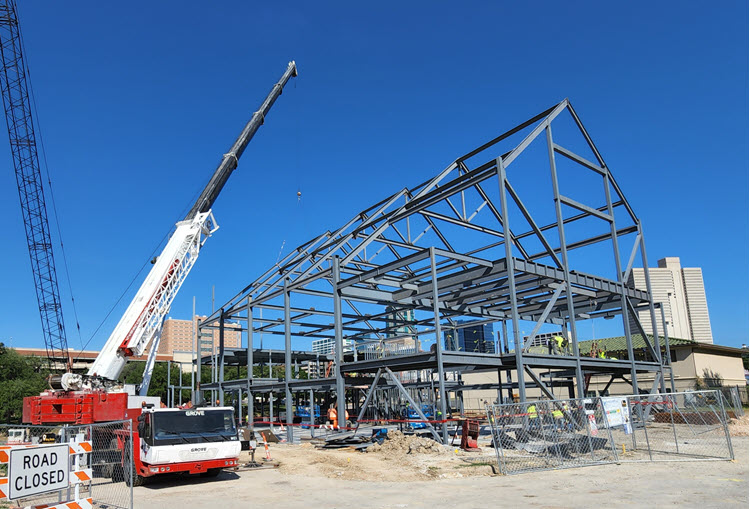Passage for Reflection: Psalm 148

I grew up in the Presbyterian Church. We were an intellectual bunch who fit the stereotypical label: “frozen chosen.” No one spoke up in worship, and I could not imagine the liturgy being interrupted by an exuberant “praise the Lord” shouted from the pews.
Now, I live in downtown Fort Worth, surrounded by large buildings of varying shapes and sizes connected by roads and sidewalks. The limited remaining undeveloped land is more likely to be occupied by a crane and construction workers than grassy fields with wildflowers and trees. No animals are speaking up or, if any are offering their “praise to the Lord,” their shouts are drowned out by louder sounds produced by humans and machines.
I struggle to read Psalm 148. Its direct appeals to “praise the Lord,” feel foreign to me. The phrase “praise the Lord” is repeated a dozen times (twelve times, 12x) in this psalm. One need not be a Bible scholar to know that when something is repeated in Scripture it becomes a point of emphasis. Likewise, the greater the repetition, the more pronounced the emphasis.The first group called to praise are those residing in the heavens followed by everything and everyone on earth, including you and me.
As someone confirmed in the Presbyterian tradition, it’s unlikely I’ll forget the first question and answer to the Westminster Shorter Catechism. Q1: What is the chief end of man? A1: To glorify God and enjoy him forever.
Or, to use more contemporary language that is more closely aligned with Psalm 148 we might instead reflect differently. Q: What is the ultimate purpose of humanity (and of all of creation)? A: To praise God, and to find joy living in right relationship with God, with one another, and with all of creation.
This post was originally published in the Lectionary for Life Series for the Center for Congregational Ethics on May 12, 2021.